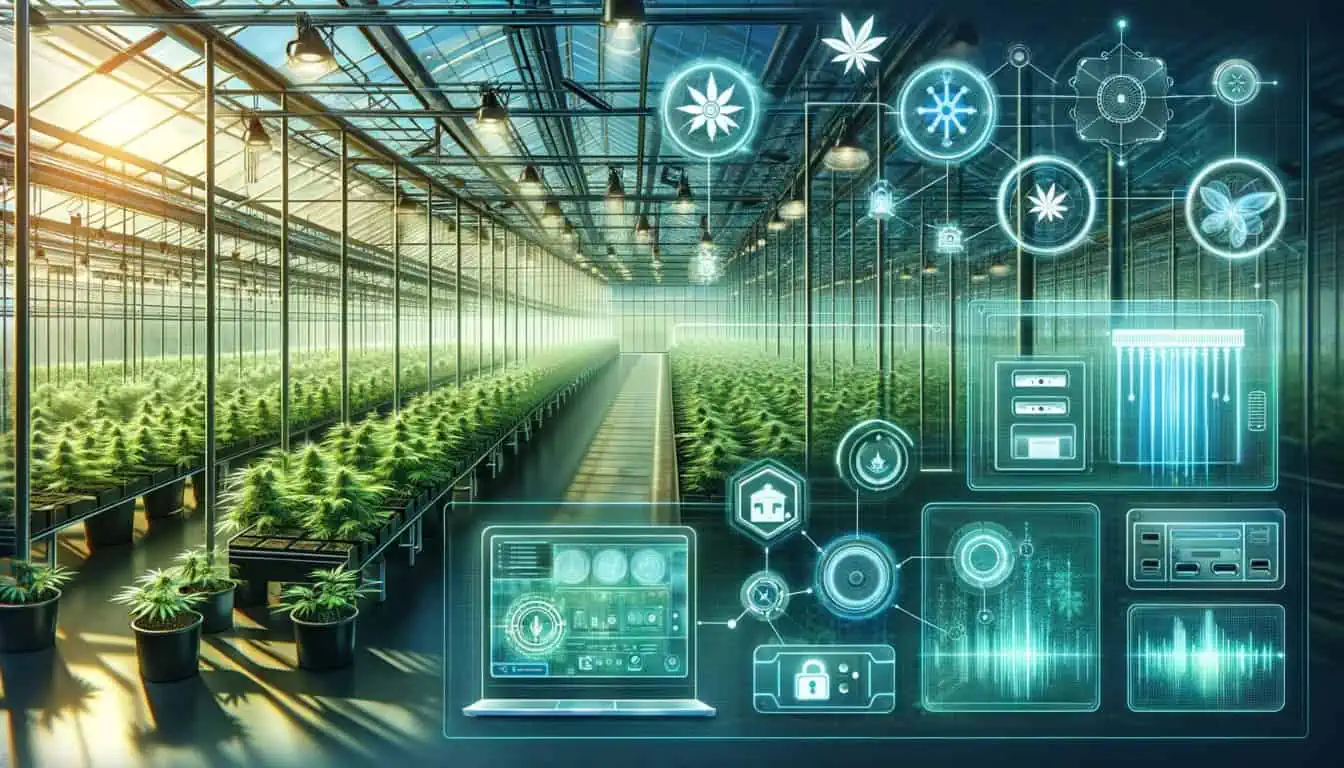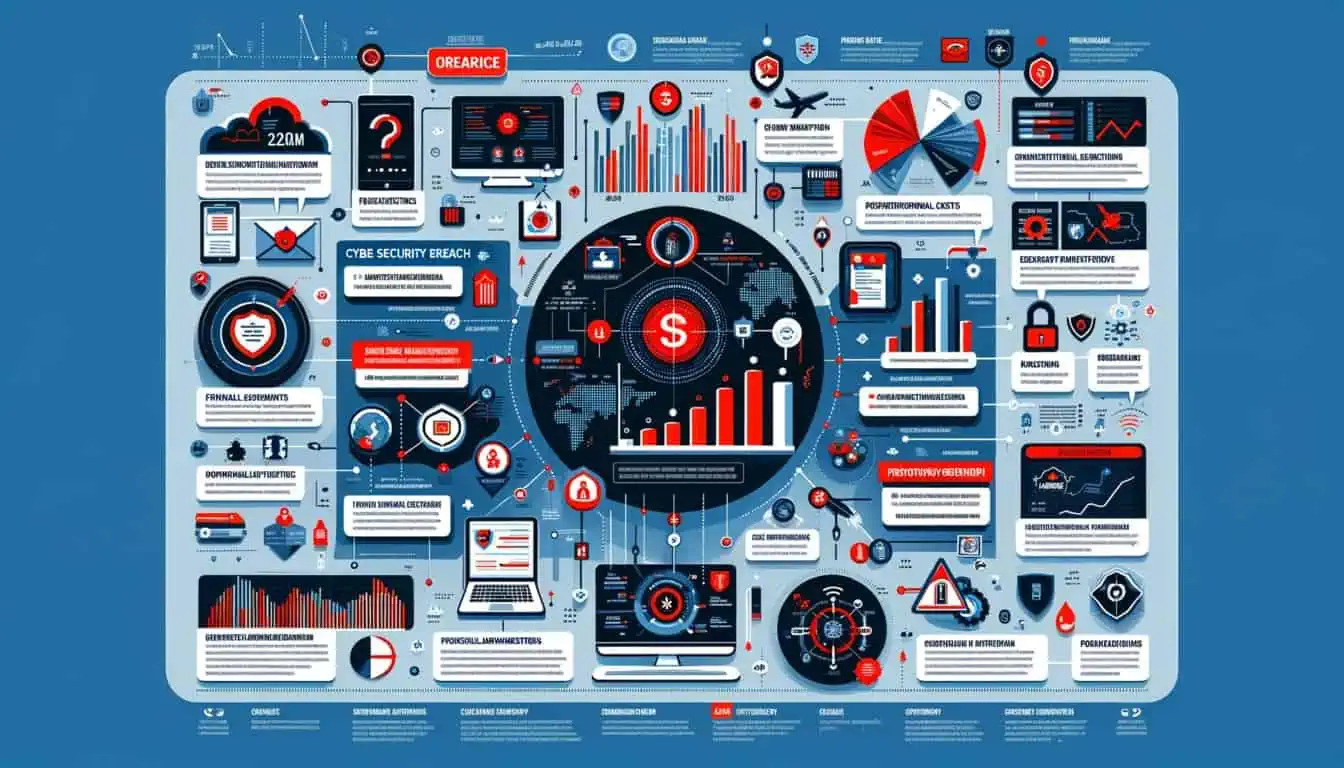The burgeoning cannabis industry has increasingly turned to sophisticated technology to optimize indoor cultivation. As technology becomes more integrated into the cultivation process, potential cyber risks and vulnerabilities increase. This reliance on digital systems brings with it a crucial concern: cyber security.
Ensuring the safety and integrity of these systems is paramount for growers who wish to protect their investments and maintain a high-quality product. The post highlights the potential threats that indoor cannabis growers face from cyber attacks and the potential aftermath of a security breach.
Understanding the Digital Landscape in Indoor Cannabis Cultivation
With the rapid advancements in technology, the indoor cannabis cultivation industry has embraced digital solutions to optimize production processes. From automated lighting systems to remote monitoring and control, growers now rely heavily on digital tools and connectivity to ensure the success of their operations. However, this increased reliance on technology also brings about the need for robust cybersecurity measures. Understanding the digital landscape in indoor cannabis cultivation is crucial for growers to protect their sensitive data and maintain the integrity of their operations.
Indoor cannabis cultivation involves the use of various digital systems, such as environmental control systems, irrigation systems, and surveillance cameras. These systems are interconnected through networks, making them susceptible to cyber-attacks. Hackers can exploit vulnerabilities in these systems to gain unauthorized access, manipulate data, or disrupt operations. The consequences of such attacks can be detrimental, leading to compromised crop yields, financial losses, and reputational damage.
Moreover, the digital landscape in indoor cannabis cultivation also includes online platforms used for sales, inventory management, and customer data collection. These platforms store valuable information, including customer details, financial transactions, and intellectual property. Without adequate cyber security measures, this sensitive data is at risk of being stolen or manipulated, potentially leading to legal and financial consequences for the growers.
To effectively protect their operations, indoor cannabis cultivators must be aware of the potential risks and vulnerabilities that exist in the digital landscape. By understanding the interconnected nature of their systems and the potential entry points for cyber attacks, growers can proactively implement security measures to mitigate these risks. This includes regularly updating software and firmware, using strong passwords, encrypting data, and implementing firewalls and intrusion detection systems.

An illustration showing the integration of modern technology in indoor cannabis cultivation
The Importance of Cyber Security in Indoor Cannabis Cultivation
Indoor cannabis cultivation relies heavily on various technological systems, such as climate control, automated watering, lighting systems, and nutrient delivery mechanisms.
These systems, often interconnected and remotely controlled, are susceptible to cyber threats. Cyber attacks can disrupt the delicate balance required for cannabis growth, leading to substantial financial losses and compromised crop quality.
Protecting Automated Systems
Automated systems are central to modern indoor cannabis cultivation. Cyber security measures must be in place to protect these systems from unauthorized access, which could lead to tampering with growing conditions.
Regular software updates, strong authentication protocols, and encryption are key strategies in safeguarding these technologies.

Data Management and Security
Cultivators collect and store vast amounts of data on cultivation techniques, plant genetics, and growth patterns. This data is invaluable for optimizing growth and ensuring consistent product quality. Implementing robust data security measures, such as secure data storage solutions and access control, is crucial to protect this sensitive information from breaches.

What Could Possibly Go Wrong? Pondering Potential Cyber Threats
In the world of indoor cannabis cultivation, the potential cyber threats that growers may face are numerous and diverse. One major concern is the possibility of unauthorized access to critical systems, such as environmental controls or irrigation systems. A hacker gaining control over these systems could manipulate the temperature, humidity, or irrigation levels, leading to disastrous consequences for the crops. Additionally, the theft or manipulation of sensitive data, such as customer information or proprietary cultivation techniques, poses a significant risk. This could result in financial losses, compromised intellectual property, and even legal repercussions.
Another potential cyber threat is ransomware attacks, where hackers encrypt the grower’s data and demand a ransom to release it. This can paralyze operations, disrupt supply chains, and cause significant financial harm. Moreover, the interconnected nature of digital systems in indoor cultivation opens the door to distributed denial-of-service (DDoS) attacks. By overwhelming the network with traffic, hackers can bring down the entire operation, leading to extended downtime and substantial losses.
Furthermore, the reliance on online platforms for sales and inventory management introduces the risk of payment fraud and identity theft. Cybercriminals may attempt to exploit vulnerabilities in these platforms to steal customer credit card information or gain unauthorized access to financial accounts. Such breaches not only result in financial losses but also erode customer trust and damage the reputation of the cultivator.
The High Cost of Low Security: Consequences of a Breach
The consequences of a security breach in indoor cannabis cultivation can be far-reaching and financially devastating. Firstly, a breach can result in the loss of valuable crops and compromised quality. If hackers gain control over the environmental controls or irrigation systems, they can manipulate the growing conditions, leading to stunted growth, mold infestation, or complete crop failure. This not only translates to immediate financial losses but also damages the reputation of the cultivator, potentially leading to the loss of customers and market share.
Additionally, a security breach can expose sensitive data, such as customer information or proprietary cultivation techniques. This puts both the cultivator and their customers at risk of identity theft and fraud. The financial repercussions can be extensive, as the cultivator may be held liable for any damages or losses incurred by their customers due to the breach. Moreover, the theft of proprietary cultivation techniques can give competitors an unfair advantage, jeopardizing the cultivator’s market position and profitability.
Furthermore, the legal consequences of a security breach should not be underestimated. In many countries, the cultivation and distribution of cannabis are highly regulated industries. A breach that compromises data compliance or exposes illegal activities can result in severe penalties, including fines and imprisonment. Cultivators may also face legal actions from customers or business partners affected by the breach, further adding to the financial burden.
Moreover, the reputational damage caused by a breach can have long-lasting effects. News of a security breach spreads quickly, and customers are likely to lose trust in a cultivator that fails to protect their data and operations. This loss of trust can lead to a decline in sales, difficulty attracting new customers, and damage to the cultivator’s brand image. Recovering from such reputational damage can be a challenging and costly endeavor.

An infographic highlighting the financial and operational impacts of a cyber security breach
Prevention is better than cure – Implementing Strong Cyber Security Measures
In the world of indoor cannabis cultivation, the old adage “prevention is better than cure” holds true when it comes to cyber security. Implementing strong cyber security measures is crucial to safeguarding the integrity and success of your cultivation operation.
First and foremost, conducting regular security audits and risk assessments is essential. This involves identifying potential vulnerabilities and weaknesses in your digital infrastructure, such as outdated software, weak passwords, or unsecured wireless networks. By proactively addressing these issues, you can mitigate the risk of a security breach and stay one step ahead of potential attackers.
Another important measure is to invest in robust firewalls and antivirus software. These tools act as a first line of defense, monitoring and blocking any unauthorized access attempts or malicious software. Regularly updating and patching these programs is vital to ensure they can effectively identify and neutralize the latest threats.
Furthermore, implementing strong access controls and user authentication protocols is essential. This includes using multi-factor authentication, strong passwords, and limiting access privileges to only those who truly need it. By controlling who can access sensitive data and systems, you reduce the risk of insider threats and unauthorized access.
Finally, educating employees about cyber security best practices is crucial. Human error and negligence can often be the weakest link in any security system. By providing training on topics such as phishing attacks, social engineering, and the importance of data protection, you empower your employees to be vigilant and proactive in safeguarding your digital assets.
Strategies for Enhancing Cyber Security in Indoor Cannabis Cultivation
- Regular System Updates and Patch Management: Ensuring all software and firmware are up to date is crucial in protecting against known vulnerabilities.
- Strong Authentication Protocols: Implement multi-factor authentication for accessing control systems and databases to reduce the risk of unauthorized access.
- Employee Training and Awareness: Educate staff on cyber security best practices, including recognizing phishing attempts and secure handling of sensitive information.
- Network Segmentation: Separate the network handling cultivation systems from other business operations to limit the potential impact of a breach.
- Regular Security Audits and Assessments: Conduct periodic security audits to identify and address vulnerabilities in the system.
The Role of Cyber Security Experts in the
Cannabis Industry
Hiring cyber security experts can provide indoor cannabis growers with specialized knowledge and skills to fortify their systems against cyber threats. These professionals can tailor security strategies to the unique needs of the cannabis cultivation environment, ensuring both digital and physical aspects of the operation are secure.

Cyber Security Risks in Indoor Cannabis Cultivation:
| Potential Risk | Impact | Prevention | Potential Outcome |
|---|---|---|---|
| Data theft | Financial loss and reputation damage | User authentication and encryption | Prevention of unauthorized access |
| Malware infection | Data corruption and system disruption | Software patches and anti-virus software | Protection of data integrity |
| Unauthorized access | Loss of control and data compromise | Firewalls and user authentication | Prevention of malicious activity |
| Denial of Service attack | System unavailability and performance degradation | Network monitoring and rate limiting | Ensuring system availability |
Given the increasing reliance on technology in indoor cannabis cultivation, it is clear that cyber security cannot be an afterthought. By understanding the potential risks and implementing robust security measures, growers can secure their operations and avoid the costly and damaging consequences of cyber attacks. It’s high time to take cyber security seriously in the indoor cannabis cultivation industry.
Conclusion
In the age of technology-driven cannabis cultivation, cyber security is not just an option, but a necessity. By implementing robust security measures and staying vigilant against emerging threats, cultivators can ensure the safety and efficiency of their growing cannabis in doors operations.
As the industry continues to evolve, prioritizing cyber security will be key in maintaining the integrity and success of indoor cannabis cultivation.
Recent Comments